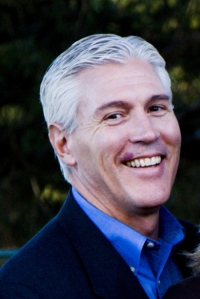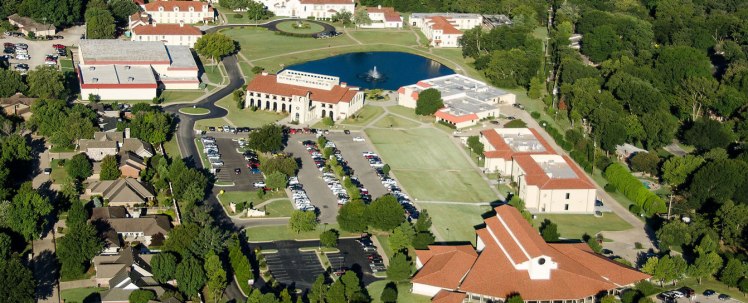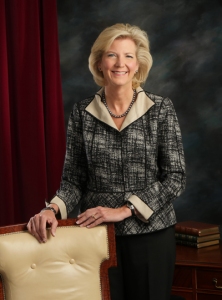World magazine reports that several other members of the Council for Christian Colleges and Universities (CCCU) have threatened to quit the organization if, at the end of August, its membership still includes Goshen College and Eastern Mennonite University (EMU) — the two Mennonite schools that announced last month that they would hire faculty and staff in same-sex marriages.
 Only Oklahoma Wesleyan president Everett Piper went on the record with World reporter J. C. Derrick, but he intimated in a statement that several others have given the CCCU the same deadline:
Only Oklahoma Wesleyan president Everett Piper went on the record with World reporter J. C. Derrick, but he intimated in a statement that several others have given the CCCU the same deadline:
I will hold off on announcing our decision until then only because I gave my word to do so… The CCCU’s bewildering desire for a drawn-out ‘conversation’ has led everyone (including me) to conclude they think the Church’s engagement in illicit sexual behavior is open for debate. Unfortunately, now, even if they ultimately do the right thing and remove EMU and Goshen from membership, the damage is done.
(Oklahoma Wesleyan is affiliated with the Wesleyan Church, but it’s not clear whether or not the other CCCU members affiliated with that denomination — Houghton College, Indiana Wesleyan, and Southern Wesleyan — are on the Aug. 31st list. Two other presidents of conservative institutions, Cedarville and Colorado Christian, told World that they would wait for a final CCCU decision.)
All this just a day after Union University president “Dub” Oliver went ahead and announced his institution’s departure from the CCCU, claiming that “The fact that this [view of marriage] is not unanimous [within the CCCU] damages our witness… marriage is at the heart of the Gospel….”

I’ve already made clear my belief that no view of marriage is truly “at the heart of the Gospel,” making the truly damaging witness here the willingness of leaders like Oliver and Piper to break Christian unity so quickly, with barely any of the needed conversation that Piper dismissed so derisively. Not for the first time this summer, I’ve found myself rereading the Epistle of James today:
My dear brothers and sisters, take note of this: Everyone should be quick to listen, slow to speak and slow to become angry, because human anger does not produce the righteousness that God desires. (James 1:19-20, NIV)
It’s also problematic that this is happening in the summer, when faculty and students are scattered. While the CCCU leadership is showing admirable patience in continuing its work of consulting with member-institution presidents, this conversation ought not to be limited to those 120-some men and women. If I were such a leader, I’d want to have plenty of time to consult with my own trustees, administrators, faculty, staff, students, alumni, donors, lawyers, and community partners. That can’t possibly happen when a right-wing minority is trying to force a decision by the end of August, not even six weeks after the Goshen and EMU announcements and in the middle of a new academic year starting.
So I would ask my faculty and other colleagues who serve at Christian colleges to join me in standing with the CCCU as it seeks to make a prudent decision, one that will have important implications not only for Christian higher education but for our witness to a world accustomed to seeing polarization, fragmentation, and institutional implosion:
-

CCCU president Shirley Hoogstra Write to your own institution’s president, chief academic officer, board chair, etc. and express your opinion. Pray that they would respond to the CCCU with wisdom and discernment.
- Encourage your faculty president or moderator to put this discussion on the agenda.
- Pray for the Goshen and Eastern Mennonite communities, and extend them your support. Even if you disagree with their institution’s change in hiring policy, those communities are peopled by sisters and brothers in Christ who share your passions and your hopes and have dedicated themselves to Christian higher education.
- Pray for Union, Oklahoma Wesleyan, and other schools that have left or are threatening to leave the CCCU. While I’ve already heard versions of “Good riddance” from some Christian college peers on Facebook, I’m still convinced that our fellowship is stronger and our conversation richer if it includes more perspectives.
- Pray for CCCU president Shirley Hoogstra and her staff, that even in such trying times, they will continue “to advance the cause of Christ-centered higher education and to help our institutions transform lives by faithfully relating scholarship and service to biblical truth.”
Finally, if you have a social media presence yourself, help spread this news. (I’m always astonished how few professors follow larger news and trends in higher education; I fear that’s true even of the relatively small world of Christian higher ed, and many of our colleagues won’t hear anything about what’s happening until we start reconvening in the next two weeks.) Unfortunately, as Spring Arbor’s John Hawthorne pointed out yesterday on Facebook, the CCCU itself has a pretty weak social media presence, so I’m not sure how best to marshal a collective response. Hashtag suggestions, anyone?
Reblogged this on lizaannacosta and commented:
If there is one thing that I learned being in a variety of Franciscan fraternities, is that we work together in spite of our differences. We come together in respect and love to work towards social justice.
God used the unlikely and least expected people in the Bible to teach, preach, bring people to Christ and live out the Gospel. I think it would be dangerous and more bad than good to exclude those communities from the CCU. Last time I checked, the Bible and Jesus taught Christians to love and not hate despite our differences and opinions.
I ask one double pointed question: What if God would use those faculty members and why should we as believers exclude them from CCCU colleges, universities, and their respective communities?
unbelievable that the action of separating themselves from sin, or taking a stance against sin is so suddenly branded as hate, unloving etc. schools should associate with those that are like minded
What’s unbelievable is that in the process of “separating themselves from sin” (which is a theological impossibility for Christians in any case) they have also separated themselves from the historical, traditional definition of the Gospel itself (the definition that puts Christ, not marriage, at its heart).
That seems more like the regrettable and forgettable hasty missteps of a non-theologian. Isn’t there a historical reason to regard the CCCU as partly functioning as a kind of accountability group to prevent its member institutions from losing their religious character and “soul?” While it may lack appropriate theological articulation at this point, same-sex marriage has obviously become a “line in the sand” issue for many religious conservatives. If some feel it is a step into secularism that the CCCU is supposed to prevent, it makes sense for them to leave in protest if they really feel that is the best thing for them. The only thing that seems really hard to justify is the hasty breakaway reaction and statements that seem crafted to instigate further reactions and a refusal to have a dialogue that’s barely begun.
I’m somewhat confused by your initial pronoun: are you suggesting that Union is making the “hasty misstep,” that the individual to whom I’m responding is, or that I am?
Sorry, I was unclear. I meant the first — it seems like it’s just badly formed theological language from Union and hasty because there is a deliberation process underway, even if they felt it should have happened before now.
The expectation that the CCCU exists in part to define a minimum orthodoxy seems more reasonable. I assume the defecting schools have good reasons to believe this minimum orthodoxy is not going to be revised to require hiring and enrollment discrimination against married gay couples. Such discrimination is probably the norm at most CCCU member schools, so the ones who see it as essential and settled have reason to feel betrayed by others who are suddenly not so sure.
Dan – Thanks for the clarification. If I can put myself in the shoes of folks like Oliver and Piper, I might feel the way you described — justified or not, that sense of being betrayed certainly comes through in some of the reporting from World Mag. (And I’ve seen little reason to think that most other CCCU members are interested in following in EMU and Goshen’s footsteps on hiring.) And there is probably something to the idea that the CCCU exists as a defense against “missional drift” or a “dying of the light.”
But… the “minimum orthodoxy” has always been minimal. As I read it, there are three boundaries here: (not counting the language that requires a liberal arts core, which is another kind of boundary, one of the most important in my mind)
1. Professors and administrators need “to profess faith in Jesus Christ” (and like John Hawthorne, I think this is *the* standard; historically, it’s been the test that sets the CCCU apart from, say, the Lilly Network). Is it impossible for non-celibate gay faculty hired by Goshen and EMU to profess Christian faith? I’m sure some in the CCCU believe that, but I think other member schools are going to be nervous about the idea that the CCCU should start setting standards for faculty faith any more precise than what the schools themselves hold to. (Keep in mind that at least some member institutions don’t even have a doctrinal statement past a profession of personal faith or a “mere Christianity” statement no more detailed than the Apostles or Nicene Creed.)
2. Are educational programs integrated with “Biblical faith”? Again, I can see schools arguing that institutions that hire non-celibate gay faculty have made clear that they reject “Biblical faith,” but (a) the standard is about “educational programs” and (b) what “Biblical” means seems to be left deliberately fuzzy. This is an organization often regarded as “evangelical,” but it doesn’t use the language of inerrancy. (It also has an affiliate member that is Roman Catholic, by the way: Franciscan of Steubenville. In another time, *that* would be the scandal for some of these more conservative schools, yet Oliver and Piper don’t even want EMU and Goshen to have that level of membership in the CCCU.)
3. Is the institution’s mission/purpose statement “Christ-centered and rooted in the historic Christian faith”? I don’t think EMU or Goshen have changed their mission documents. So you’d have to argue that the hiring decision is such a reckless departure from an essential (“heart of the Gospel”) Christian doctrine or practice that it makes the stated Christian mission untenable. Here again, if I were a CCCU president, I’d be really leery of going down that slippery slope for the sake of appeasing a minority who probably want the organization to exercise more of a gatekeeping function — and probably on many more issues that we’re not yet talking about. (Increasingly, I suspect that this is not just about sexuality and marriage.)
Anyway, thanks for the comment and the clarification. Sorry this rambled so long!
That’s helpful, maybe even worth a post on its own — what is the CCCU in terms of its history, membership, and purpose? Isn’t this exactly what is being contested?
There is more than “probably something to” the idea that the CCCU exists as a defense against secularization; it is taken as a central tenet of the CCCU’s 13 founding members according to this recent dissertation, The Strained Partnership Between Secularization and Sectarianism in Higher Education: http://bit.ly/1JoHZ87 Oliver and Piper seem to have deliberately echoed the influential language of George Marsden in The Soul of the American University where this institutional soul is absolutely what is at stake. In a 2011 award address to the CCCU Marsden said the following:
As the dissertation makes clear, this sacred/secular conflict in Marsden’s words reflects the way the founding core and maybe a majority of the CCCU membership conceives of their position relative to the larger culture. It’s no secret either that a large number of these institutions articulate their idea of biblical sexual morality and impose it as a discipline, including by making use of their right to discriminate in ways non-religious institutions can’t. For Piper and Oliver, Marsden’s view of CCCU schools as the vanguard of an offensive against “secular culture” rooted in intentional communities with a different set of moral standards will sound like support for exactly what they are doing. Others might disagree and locate the threat of secularization elsewhere, or suggest a different response to sexuality and marital issues. However, these differences have not be discussed much in a collegial way within most member institutions and certainly not between them. (The closest thing I’ve seen to that is the recent “Q” conference which immediately garnered a vituperative reaction from polemicists who are in some cases supporting those walking out from the CCCU.) Meanwhile in response to the charge that they are becoming soft on the secular culture by not turning out Goshen and EMU, the CCCU has pointed to its positions against the HHS contraceptive mandate and ongoing support for the right of its members to discriminate in their hiring policies on the basis of a “traditional marriage” definition.
Does this seem like a sustainable coalition? It seems like they’re supporting opposing sides or at least radically different approaches to contested issues in the culture wars. How many schools are willing to pay into an organization that might fund and spearhead positions they and their constituents oppose?
I have a couple of friends who are thinking of posts along the lines you suggest, so I’ll probably leave it to them — or to you, if you have a blog of your own where you can expand this comment — to develop the historical argument. But part of what draws me to the defense of the CCCU is my professional interest in Carl Lundquist, who helped build the CCCU and Christian College Consortium long before any Southern Baptist schools were part of it. While I’m sure he shared the kind of concerns that Marsden describes as animating such projects, his vision was inherently irenic — threatened by the tone of Oliver and Piper as much as by any doctrinal/policy shift by any member school. (Which is not a reason to prop up something that’s unsustainable — there’s nothing eternal about the CCCU, and a new gathering might end up being necessary. But I’m wired similarly enough that I can’t stand the thought of everything crumbling under this kind of pressure.)
Nope, no blog fortunately or unfortunately. 🙂 I sympathize, but as a long time resident within and around CCCU members or affiliates in several states, it really seems like so many chickens coming home to roost. How irenic can the vision be when it is based on movements and institutions that are only superficially ecumenical and never make any serious headway on matters of real and historic division because it is just not on the agenda — whereas cultural, political power and influence is? Does anyone really think Harvard would be “more Christian” today if it still discriminated against Jews or rolled back to a Puritans-only policy of faculty hires? Why then is it thought good for some Christian colleges? John Hawthorne doesn’t seem to like our return to “separate but equal” in the public schools; does a similar ethos make highly sectarian Christian higher education stronger?
By making the real tie that binds the right to maximum self-segregation (which is what the discrimination does) sectarianism turns its back on Christ’s will for unity and Paul’s ability to be all things to all people. Perhaps that unity and openness, or a good college try at it, is the only basis for a substantial pragmatic solidarity in the world.
This is better stated in the advice of a Notre Dame philosophy professor to Baylor in 1995 that takes seriously the concern that screening faculty for alignment with a particular religious mission and identity will prove corrupting. He agrees that anything more than filtering for people who are “friendly to the religious commitments that provide the identity of the university” and definitely any “attempts at the regulation of behavior and belief” after hiring “would not only tend to corrupt religious practice but it would also offend against the most elementary tenets of academic freedom.” It might also produce a crop of colleges whose leaders and constituents expect to enforce internal and external orthodoxies in very strict, combative terms. I would not expect people formed in these cultures to have time to debate their foregone conclusions or think twice about throwing faculty and peer institutions under the bus as a matter of fidelity to their sectarian vision.